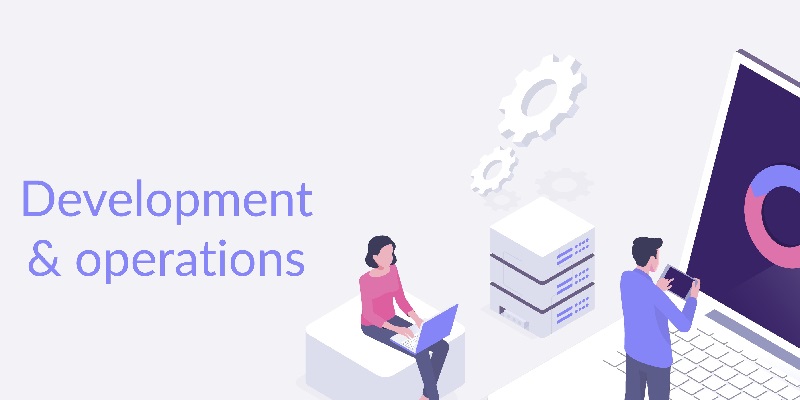In today’s fast-paced and highly competitive digital landscape, businesses must remain agile, innovative, and responsive to customer needs. Achieving this requires a strategic approach to software development and delivery that facilitates continuous deployment of high-quality software. This is where DevOps comes in. DevOps is a software development approach that combines development and operations teams, technologies, and processes to streamline software delivery while improving overall performance. In this article, we’ll explore the definition of DevOps, its cultural impact, the importance of communication in DevOps, the need for risk-taking and fast learning, process improvement, security in DevOps, and how to establish a culture of accountability.
What is DevOps?
DevOps is a software development approach that unifies and streamlines web development and IT tasks through convergence and automation. Simply put, it combines development and operations teams to reduce development cycle times, automate testing and deployment, and improve delivery speed. DevOps increases collaboration between the teams, leading to faster and more reliable software delivery. The methodology emphasizes continuous integration, continuous testing, and continuous deployment to deliver quality software to customers quickly.
DevOps lifecycle
The DevOps lifecycle is a software development approach that emphasizes collaboration and communication between development and operations teams. It is an iterative process that includes several steps, such as planning, coding, testing, deployment, and maintenance. Organizations that adopt a DevOps lifecycle are better positioned to achieve continuous delivery, allowing them to quickly and efficiently meet customer demands, feedback, and needs. Moreover, the DevOps lifecycle facilitates continuous integration, which results in a continuous delivery process.
DevOps culture
The DevOps culture is an outlook that emphasizes the need for everyone within an organization to participate in ethical work practices. It is collaborative and promotes working together to achieve a common goal. DevOps is a culture of transparency, communication, and teamwork, where everyone’s input is valued, including that of developers and operations staff. The culture of DevOps emphasizes continuous improvement, with teams given the tools and resources to learn and develop new skills.
Cultural transformation
A change in thinking and behavior is required for DevOps cultural transformation to take place. The transformation process requires the adoption of new practices, development methodologies, and processes to facilitate collaboration between development and operations teams. The path to DevOps transformation may not be a smooth or easy journey, but once it is achieved, it can result in a more efficient and effective development process.
Impact of Agile
The introduction of Agile software development has compelled many IT systems organizations to adopt new software development methodologies at an alarming rate. This development methodology emphasizes prototyping, working software, and customer interaction over documentation. Additionally, Agile highlights the importance of collaboration, self-organization, and communication. With the introduction of Agile, the software development process began to shift from being a project-centric process to being a continuous one.
Communication in DevOps
Effective and open communication throughout the organization is the most important factor in implementing DevOps. Communication helps to bring together the diverse teams within an organization and encourages collaboration across departments. Moreover, effective communication promotes transparency, which enables the team to function better, share their ideas, and identify and solve problems.
Importance of Risk-Taking and Fast Learning
DevOps is based on fast learning and rapid execution with a high likelihood of failure. Teams must develop a culture that supports experimentation and risk-taking to innovate and quickly find new solutions. Failure is inevitable in the DevOps development process, but it serves as a learning opportunity for the team, providing them with the chance to analyze and enhance the development process.
Process improvement
Improving processes and creating new ways is necessary for the organization to remain competitive. DevOps emphasizes the need for continuous improvement, where teams focus on refining the development process regularly. Additionally, DevOps favors automation, which enables teams to deliver quality software faster.
Security in DevOps is important to ensure that security is integrated into the software development process itself, rather than added as an afterthought. By implementing security measures from the beginning, DevOps teams can reduce vulnerabilities, improve the reliability of the software, and prevent potential security breaches.
Security must be considered throughout the software development process. DevOps encourages teams to implement security best practices into their workflows to prevent cybersecurity threats. Security should be a key consideration during the design, development, and implementation phases of the DevOps lifecycle.
Organizational culture and accountability
Getting DevOps right means changing the organizational culture to establish a common accountability model based on results and values. Individual team members should be held accountable for their actions, and the team should work together to ensure that they are delivering quality software. A successful DevOps transformation requires a culture of collaboration and transparency where each team member’s input is valued.
DevOps is transforming the software development and delivery process. It is a software development approach that combines development and operations teams to minimize development cycle times, automate the testing and deployment process, and improve the overall delivery speed. With DevOps, teams can achieve continuous integration, continuous testing, and continuous deployment, which helps deliver quality software. The culture of DevOps emphasizes continuous improvement, collaboration, and teamwork to achieve a common goal. Organizations must prioritize communication, risk-taking, and process improvement and accountability to make DevOps work for them. By prioritizing DevOps principles, businesses can achieve faster and more efficient software development and delivery, allowing them to meet customer demands more effectively.

